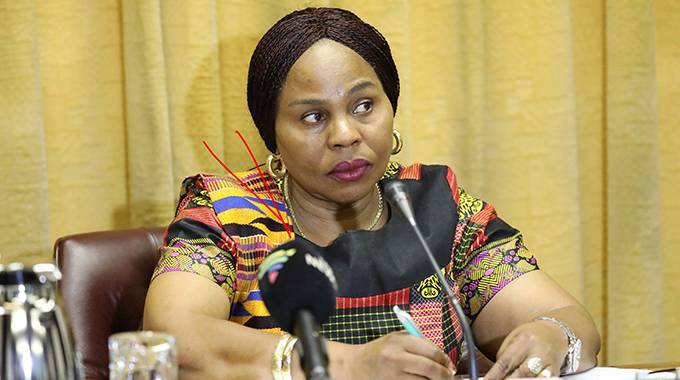EDITORIAL COMMENT : Producer prices must benefit all

The issue of producer prices of agricultural commodities is always an emotive one and different stakeholders always express mixed views whenever new prices are announced.
The prices are announced after the production process is complete, meaning farmers have limited choices. Farmers would rather producer prices were announced ahead of the farming season.
Nonetheless, it is our hope that serious farmers who appreciate the economic matrix the country is trying to solve, especially in the sphere of managing the overall downstream effect of the prices of all primary commodities, will appreciate where we are coming from and going as a country.
Information, Publicity and Broadcasting Services Minister Cde Monica Mutsvangwa, while addressing the media during a post-Cabinet briefing in Harare on Tuesday, announced the approved producer prices for all major agro-commodities this year.
She said Cabinet approved the proposal by Minister of Lands, Agriculture, Water, Climate and Rural Resettlement to review producer prices for maize, small grains, wheat, soyabeans and cotton as follows: maize and small grains, RTGS$726 per metric ton; wheat, RTGS$1 089,69; soyabean, RTGS$ 918; and cotton, RTGS$1 950 per tonne.
Cabinet also approved that the 38,5 percent subsidy on the selling price to millers be maintained in order to prevent increases in retail prices. In US dollar terms, the prices are now aligned to the import parity prices in the region of about US$280 per tonne of maize and other cereals.
It is Government’s hope that the review of the producer floor price will result in increased agricultural production, and, hence, boost national food security moving forward.
We think the producer price of RTGS$726, reflecting an increase of 86 percent compared to prior year price for maize, is an economically viable price although some people went on the social media in an effort to trash Government efforts.
In our view, the new prices are effectively viable for the farmers but what remains critical is how Government manages the downstream effect on respective value chains of the affected agricultural produces. Many businesspeople in Zimbabwe have thrown out of the window the practice of making decent profits through putting small mark-ups and moving large volumes and now want to make super profits through overpricing.
After receiving such motivating prices from Government, we now expect many farmers and other players along the respective value chains to play ball and ensure the end product remains affordable to the consumers.
We want to encourage our farmers to follow sustainable best farming methods and ensure that their land continues to produce enough food for both the domestic and foreign markets. What this means is for a farmer to finally record an impressive bumper yield, there are critical stages to be followed. Working with some agricultural extension workers dotted around the country, we expect our farmers to receive expert advice that yields better results and treat farming as a business not a hobby.
For the farmers to yield up to 20 tonnes per hectare like what happens in other provinces, planning remains critical for them to enjoy these lucrative producer prices being announced. We are mindful of the fact that the majority of our farmers work with natural rains that at times are not reliable due to the vagaries of climate change.
However, what remains central is a wise farmer will have the HP of his soil tested, have right seed suitable for the natural farming region and right amount of fertiliser in place for those who rely on natural rains.
Good tillage follows, ensuring there is good depth achieved to allow more water to percolate and encourage plant growth and moisture conservation, ensure basal fertilisers are applied during planting and that weeds and pests are controlled to allow the crop to grow without competition for nutrients.
We do not want a breed of farmers that always demands higher producer prices while they produce little of poor quality. Farming is a business that is self-funding and if properly done, Government will end up scrapping schemes such as Command Agriculture support and channel that money towards other key economic activities.
We do not want the State to continue sponsoring mediocrity while there are other key sectors that also require attention. We therefore demand that there be mechanisms to ensure that all players in the agriculture value chains yield their gains through producing more volumes of quality products that they sell at reasonably lower prices.
We believe that as long as our farmers and the forward linkages that benefit from their produces are ethical and honest, the new prices announced by Government will not in any way result in food price spikes.








Comments